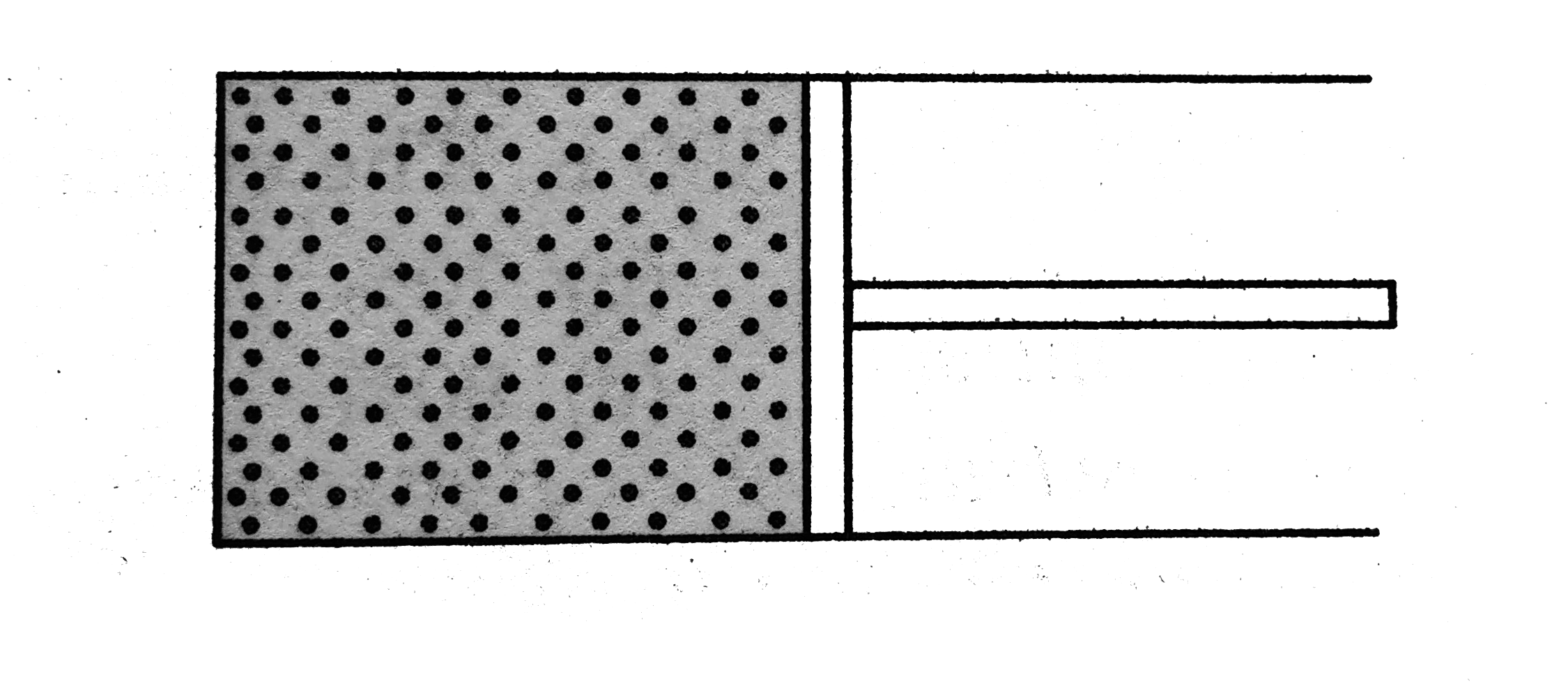When 3mole of an idela gas expand reversibly and isothermally five times its initial volume 6kJ heat flow into it. What must be the temperature of the gas?
To solve the problem, we will follow these steps:
Step 1: Identify the Given Data
- Number of moles (n) = 3 moles
- Heat flow into the gas (Q) = 6 kJ = 6000 J (since 1 kJ = 1000 J)
- Initial volume (V1) = V
- Final volume (V2) = 5V (since it expands 5 times its initial volume)
Step 2: Understand the Process
The gas expands isothermally and reversibly. In an isothermal process, the temperature (T) remains constant.
Step 3: Use the First Law of Thermodynamics
The first law of thermodynamics states:
ΔU=Q+W
Where:
- ΔU is the change in internal energy
- Q is the heat added to the system
- W is the work done by the system
Step 4: Determine the Change in Internal Energy
For an ideal gas undergoing an isothermal process, the change in internal energy (ΔU) is zero because it depends on the change in temperature:
ΔU=nCVΔT=0
Thus, we have:
0=Q+W
This implies:
Q=−W
Step 5: Calculate the Work Done (W)
For isothermal expansion of an ideal gas, the work done (W) can be calculated using the formula:
W=nRTln(V2V1)
Substituting V2=5V and V1=V:
W=nRTln(5)
Step 6: Substitute into the First Law Equation
From the first law, we have:
Q=−W
Substituting for W:
Q=−nRTln(5)
Since Q=6000J:
6000=−3RTln(5)
Step 7: Solve for Temperature (T)
Rearranging the equation gives:
3RTln(5)=−6000
T=−60003Rln(5)
Step 8: Substitute the Value of R
Using the value of the gas constant R=8.314J/(mol⋅K):
T=−60003×8.314×ln(5)
Step 9: Calculate T
First, calculate ln(5):
ln(5)≈1.609
Now substituting this value:
T=−60003×8.314×1.609
T=−600040.000
T≈150K
Final Answer
The temperature of the gas must be approximately 150 K.
---
- Number of moles (n) = 3 moles
- Heat flow into the gas (Q) = 6 kJ = 6000 J (since 1 kJ = 1000 J)
- Initial volume (V1) = V
- Final volume (V2) = 5V (since it expands 5 times its initial volume)
The gas expands isothermally and reversibly. In an isothermal process, the temperature (T) remains constant.
The first law of thermodynamics states:
ΔU=Q+W
Where:
- ΔU is the change in internal energy
- Q is the heat added to the system
- W is the work done by the system
For an ideal gas undergoing an isothermal process, the change in internal energy (ΔU) is zero because it depends on the change in temperature:
ΔU=nCVΔT=0
Thus, we have:
0=Q+W
This implies:
Q=−W
For isothermal expansion of an ideal gas, the work done (W) can be calculated using the formula:
W=nRTln(V2V1)
Substituting V2=5V and V1=V:
W=nRTln(5)
From the first law, we have:
Q=−W
Substituting for W:
Q=−nRTln(5)
Since Q=6000J:
6000=−3RTln(5)
Rearranging the equation gives:
3RTln(5)=−6000
T=−60003Rln(5)
Using the value of the gas constant R=8.314J/(mol⋅K):
T=−60003×8.314×ln(5)
First, calculate ln(5):
ln(5)≈1.609
Now substituting this value:
T=−60003×8.314×1.609
T=−600040.000
T≈150K
The temperature of the gas must be approximately 150 K.
Topper's Solved these Questions
- THERMODYNAMICSBOOK - CENGAGE CHEMISTRY ENGLISHCHAPTER - THERMODYNAMICSEXERCISE - Ex 6.2
27 Videos
- THERMODYNAMICSBOOK - CENGAGE CHEMISTRY ENGLISHCHAPTER - THERMODYNAMICSEXERCISE - Ex 6.3
27 Videos
- THERMODYNAMICSBOOK - CENGAGE CHEMISTRY ENGLISHCHAPTER - THERMODYNAMICSEXERCISE - Exercise
1 Videos
- STOICHIOMETRYBOOK - CENGAGE CHEMISTRY ENGLISHCHAPTER - STOICHIOMETRYEXERCISE - Archives Subjective
33 Videos
Similar Questions
One mole of a perfect gas expands isothermally to ten times its original volume. The change in entropy is
View SolutionCalculate entropy change when 10mol of an ideal gas expands reversible and isothermally from an initial volume of 10L to 100L at 300K.
View SolutionTwo moles of a gas expand reversibly and isothermally at temperature of 300K. Initial volume of the gas is 1 L while the final pressure is 4.926 atm . The work done by gas is
View Solution2mol of an idela gas expand reversibly and isothermally at 25∘C from 2L to 10L. Calculate the work done by the gas in calories.
View SolutionWhat will be the entropy change when two moles of an ideal gas expand reversibly from initial volume of 1 litre to 10 litre at constant temperature of 300 K?
View SolutionFour moles of an ideal gas at a pressure of 4 atm and at a temperature of 70∘C expands is othermally to four times its initial volume : What is (i) the final temperature and (ii) the final volume ?
View Solutionn moles of a gas are filled in a container at temperature T. If the gas is slowly and isothermally compressed to half its initial volume, the work done by the atmosphere on the gas is

View SolutionTwo moles of an ideal gas is expanded irreversibly and isothermally at 37∘C until its volume is doubled and 3.41KJ heat is absorbed from surrounding. ΔStotal(system +surrounding) is:
View Solution1 mole of an ideal gas at 25∘ C is subjected to expand reversibly and adiabatically to ten times of its initial volume. Calculate the change in entropy during expansion (in JK−1mol−1)
View SolutionWhen one mole of an ideal gas is compressed to half of its initial volume and simultaneously heated to twice its initial temperature, the change in entropy of gas (DelataS) is:
View Solution
